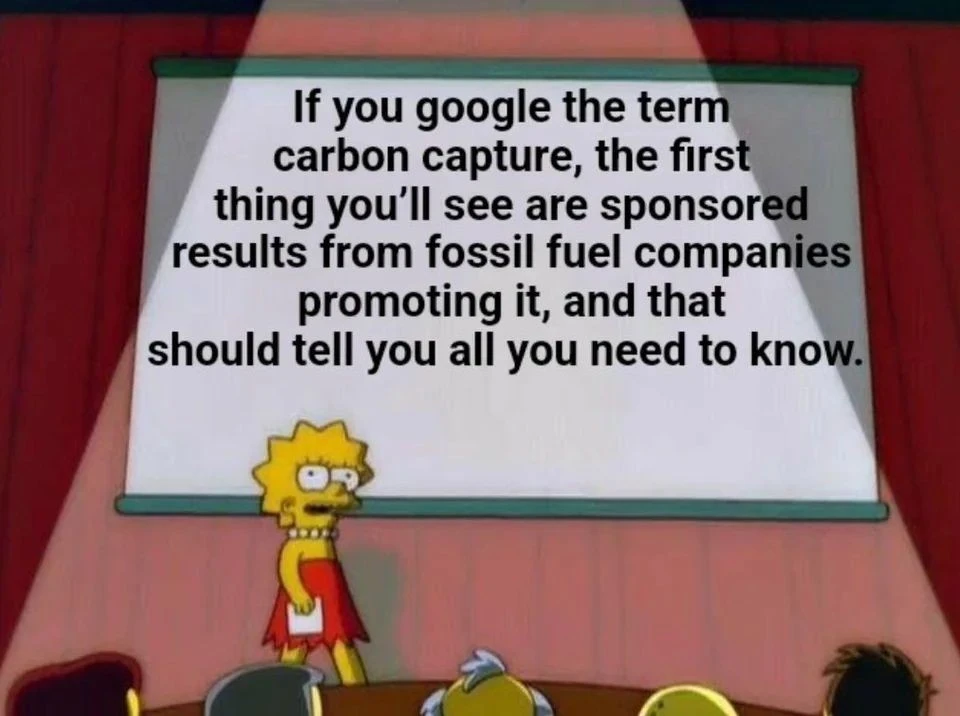this post was submitted on 10 Dec 2023
1390 points (96.4% liked)
solarpunk memes
3207 readers
107 users here now
For when you need a laugh!
The definition of a "meme" here is intentionally pretty loose. Images, screenshots, and the like are welcome!
But, keep it lighthearted and/or within our server's ideals.
Posts and comments that are hateful, trolling, inciting, and/or overly negative will be removed at the moderators' discretion.
Please follow all slrpnk.net rules and community guidelines
Have fun!
founded 2 years ago
MODERATORS
you are viewing a single comment's thread
view the rest of the comments
view the rest of the comments

I'm not sure what you're trying to convey here. Carbon sequestration is unarguably a way to mitigate climate change, and sequestration of CO~2~ is probably the most reasonable way to do so. It doesn't need to be as a gas, as taking CO~2~ and exposing it to various oxides creates carbonates, which are generally very stable compounds like limestone.
The other commenter simply said carbon could be captured as CO~2~ and sequestered without being reduced, which is absolutely true and frankly makes much more sense from a physics/thermodynamics POV.
You guessed right - without reductions or conversion it simply becomes a ticking time bomb. Anything secure enough to capture and contain a gas reliably for millennia without maintenance will be too expensive to be practical.
Methane is a greenhouse gas more potent than CO2 that was stored underground for millennia. You would need actual data to conclude that storing CO2 is too expensive.
There are no manmade Methane stores from before the Christian era and there never have been. If you're going to argue that methane that was produced underground millions of years ago is a valid human goal, you may as well propose the simpler method of just increasing the Earth's orbit by a few tenths of a percent to offset the heating due to CO2. Done and done.